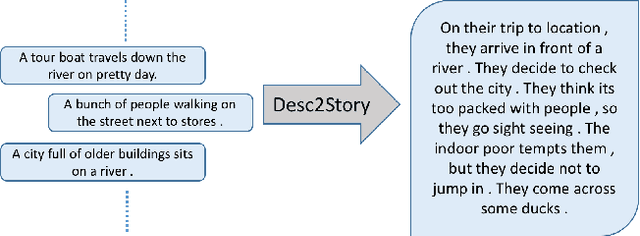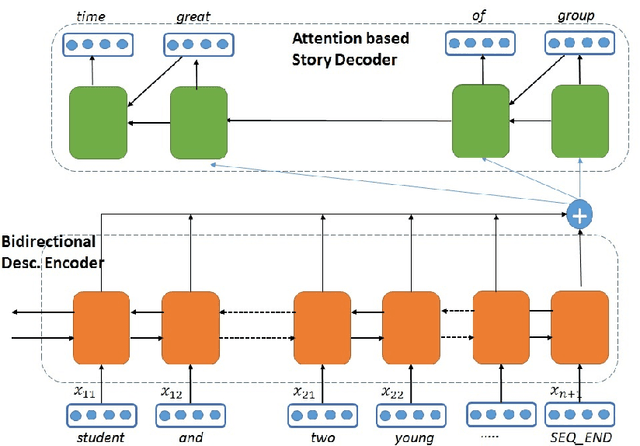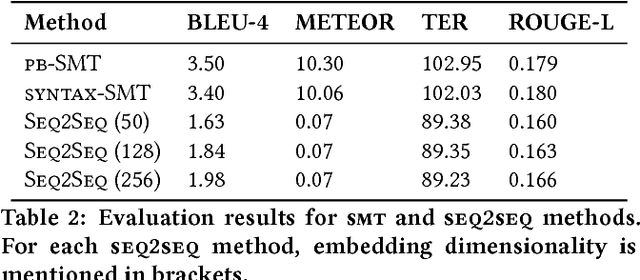Story Generation from Sequence of Independent Short Descriptions
Paper and Code
Aug 21, 2017



Existing Natural Language Generation (NLG) systems are weak AI systems and exhibit limited capabilities when language generation tasks demand higher levels of creativity, originality and brevity. Effective solutions or, at least evaluations of modern NLG paradigms for such creative tasks have been elusive, unfortunately. This paper introduces and addresses the task of coherent story generation from independent descriptions, describing a scene or an event. Towards this, we explore along two popular text-generation paradigms -- (1) Statistical Machine Translation (SMT), posing story generation as a translation problem and (2) Deep Learning, posing story generation as a sequence to sequence learning problem. In SMT, we chose two popular methods such as phrase based SMT (PB-SMT) and syntax based SMT (SYNTAX-SMT) to `translate' the incoherent input text into stories. We then implement a deep recurrent neural network (RNN) architecture that encodes sequence of variable length input descriptions to corresponding latent representations and decodes them to produce well formed comprehensive story like summaries. The efficacy of the suggested approaches is demonstrated on a publicly available dataset with the help of popular machine translation and summarization evaluation metrics.
 Add to Chrome
Add to Chrome Add to Firefox
Add to Firefox Add to Edge
Add to Edge